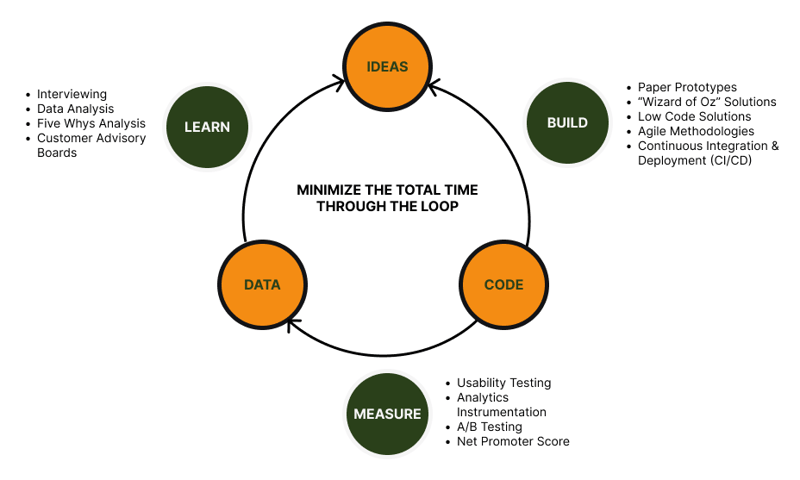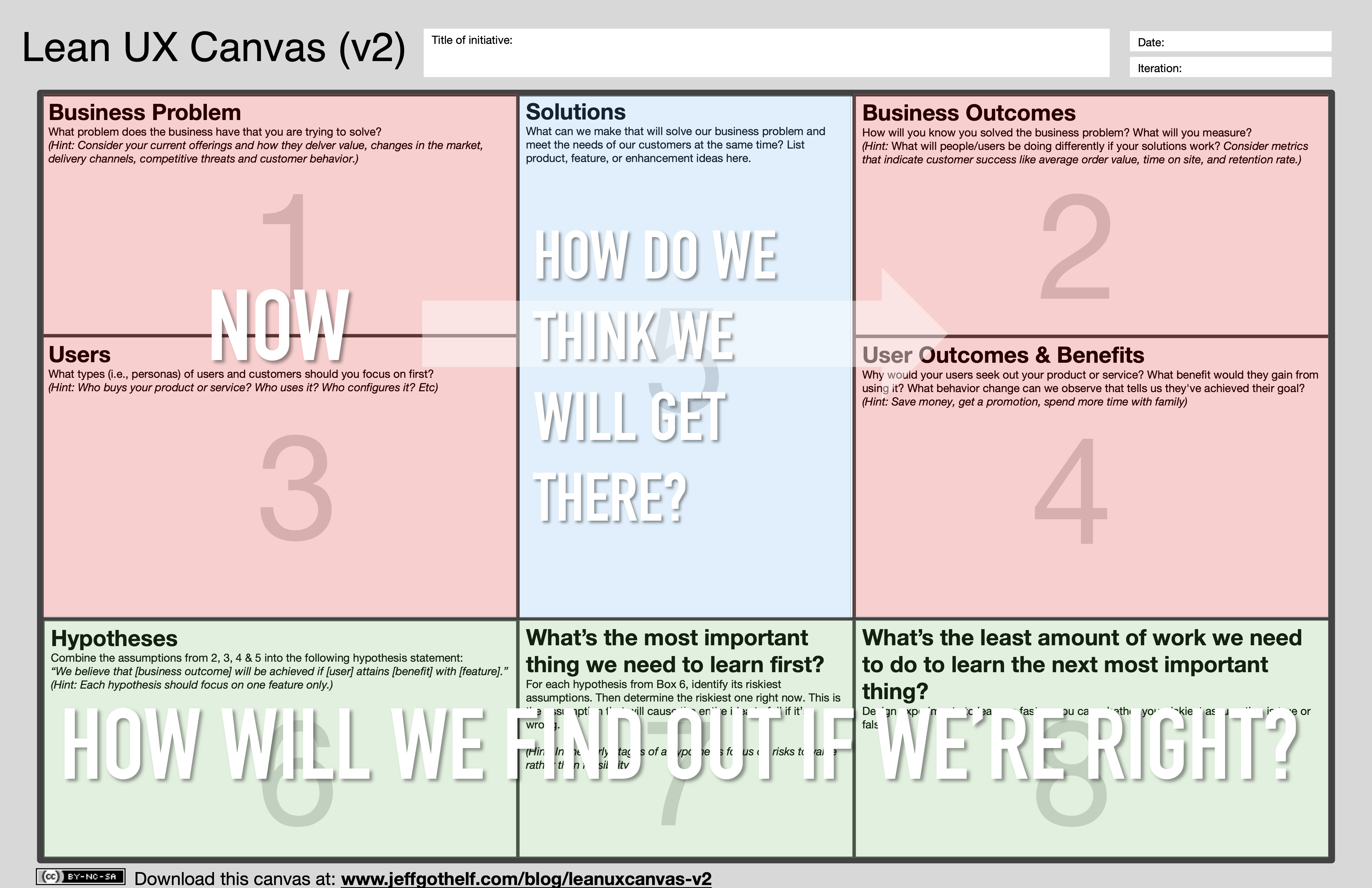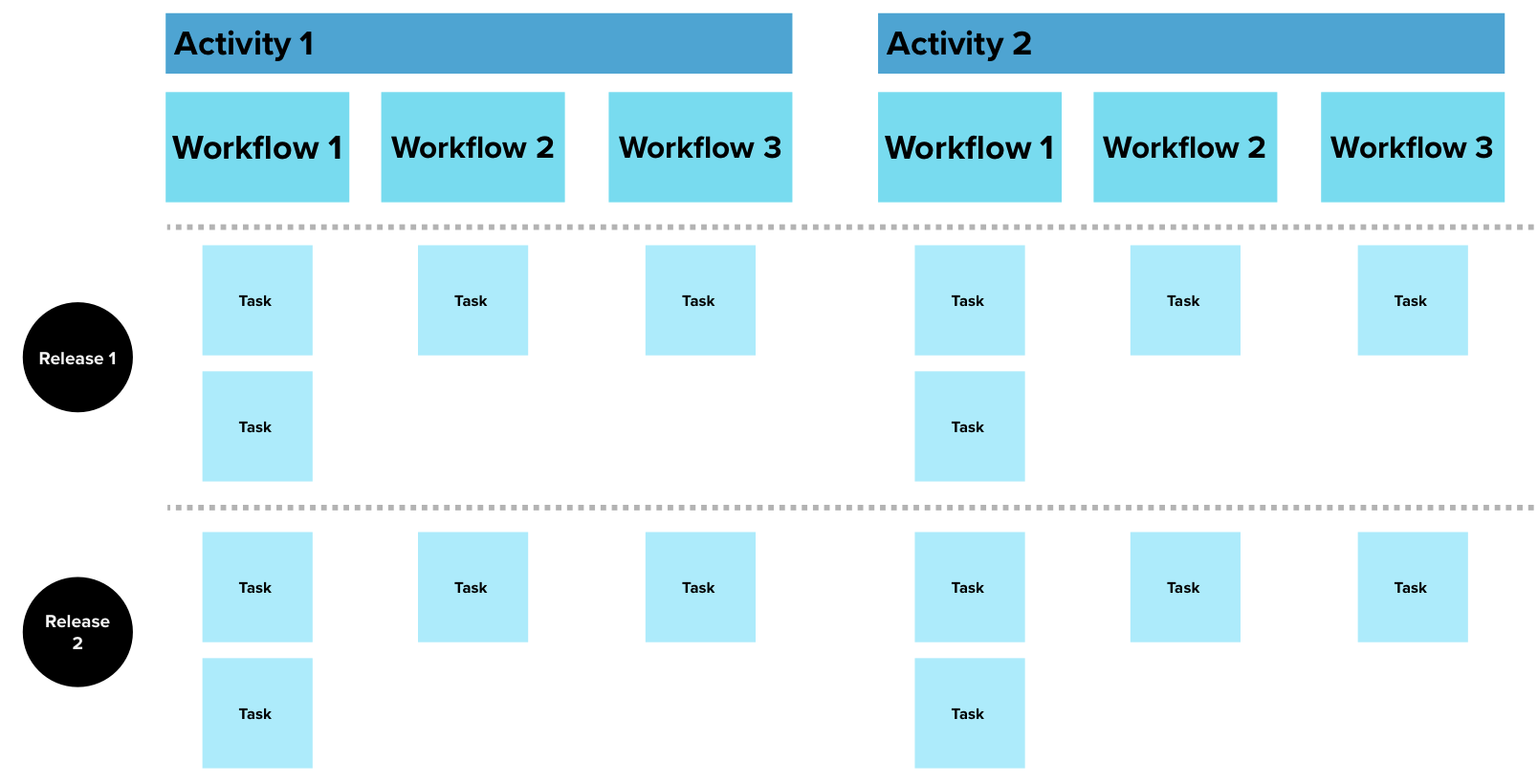My #1 Tip for Data Scientists: Launch Your Products Early and Often
Product Management, Lean Startup, and the MVP
Most of my career has been in Product Management, and over my 20+ years, I've built a few companies and many products from scratch and even sold one to a technology company in the Bay Area. I've had the fortune of learning a lot about how to build better products. I took everything I learned about building products when transitioning to my role as a Data Science and Analytics organization leader. I put them to work in every aspect of what I deliver. The first and most important thing I teach people. Launch early and often, get feedback, and iterate.
One of the common mistakes Data Scientist makes is to wait for what they think is perfection before they let anyone see what they've built, whether this is a model's performance, the design of a dashboard, or the summary of their findings. The biggest problem with waiting for "perfection" is that no solution is perfect or even close to perfect the first time you get feedback. A better way is to get the bare-bones working and start getting feedback from your users, the core of the Lean Startup methodology and the Minimum Viable Product (MVP).
This article will explore how data scientists and analysts can learn from product managers about Lean Startup principles and MVPs to build better products. We will cover the following topics:
- Understanding the Lean Startup Methodology: We will introduce the concept of the Lean Startup methodology and how it can help companies to validate their ideas quickly and cheaply.
- Exploring the Minimum Viable Product (MVP): We will explain what an MVP is and how it can help companies to focus on what is truly important to users.
- Learning from Product Managers: We will discuss how data scientists and analysts can work closely with product managers to leverage Lean Startup principles and MVPs in product development.
- Benefits of Leveraging Lean Startup and MVPs: We will highlight the benefits of using these principles, including how they can help companies to be more agile and adaptable in their product development.
By the end of this article, you will better understand how to leverage the principles of Lean Startup and MVPs to build better products that meet the needs of your users. Whether you're a data scientist, analyst, or product manager, these principles can help you to develop products that are more likely to be successful.
The Lean Startup Methodology
The Lean Startup methodology is an approach to product development that emphasizes getting feedback from users early on in the process. This approach is designed to help companies avoid wasting time and resources on developing products that don't meet users' needs.
To leverage the principles of the Lean Startup methodology, data scientists and analysts should start by identifying their target users and understanding their needs. This process requires researching and gathering data on user behavior, preferences, and pain points. Once they clearly understand their target users, they can start developing hypotheses about how to meet their needs.
The next step is to create a minimum viable product (MVP) that addresses one or more of these hypotheses. The MVP should be simple and easy to use and provide users with a clear value proposition. The MVP could be in the form of a prototype, a wireframe, or a mockup.
Once the MVP is created, get feedback from users as soon as possible through user testing, surveys, or other forms of feedback gathering. The goal is to validate the hypotheses and get insights into how users interact with the product.
Based on this feedback, data scientists and analysts can iterate on the MVP and make improvements. This process of iterating and testing should continue until the product meets users' needs and is ready to be launched. This process is also known as the Build-Measure-Learn cycle.

The Role of Product Managers in Lean Startup
Product managers play a critical role in the Lean Startup methodology. They are responsible for identifying user needs, defining product requirements, and prioritizing features. They work closely with development teams to ensure that the product meets users' needs and is developed efficiently and effectively.
Data scientists and analysts can also leverage the expertise of product managers in defining and refining the MVP. Product managers can provide valuable insights into user needs and preferences, and they can help data scientists and analysts identify the key features that will make the product successful.
When the data scientists and analysts are not working on a product feature but rather an internal project, they are most likely not working directly with a product manager. In cases like an internal project, the data scientist or analyst should assume the role of a product manager, moving their solution through the Build-Measure-Learn cycle.
Minimum Viable Product (MVP)
The concept of the minimum viable product (MVP) is a key component of the Lean Startup methodology. The MVP is a product that has just enough features to satisfy early customers and provide feedback for future product development. The MVP is designed to be created quickly and cheaply so that companies can validate their ideas before investing too much time and money.
To leverage the concept of MVPs, data scientists, and analysts should start by identifying the key features required to meet users' needs. They should focus on creating a product that provides a clear value proposition and addresses one or more of the user needs. The MVP should be **simple and easy to use and provide users with a clear value proposition.
Once the MVP is created, data scientists and analysts should focus on getting feedback as soon as possible through interviews, user testing, surveys, or other forms of feedback gathering. The goal is to validate the hypotheses and to get insights into how users interact with the product.
Note: Design Thinking provides a great framework for this process. Check out my article, How Might We Utilize Design Thinking to Boost Data Science Projects, for more information.
Based on this feedback, data scientists and analysts can iterate on the MVP and make improvements.
Benefits of Leveraging Lean Startup and MVPs
There are several benefits to leveraging Lean Startup principles and MVPs in product development. One of the key benefits is that it allows data scientists and analysts to validate their ideas quickly and cheaply, before investing too much time and money. MVPs can help avoid the risk of developing products that don't meet users' needs or are too expensive to develop.
Another benefit is that it helps data scientists and analysts focus on what is truly important to users. By prioritizing features based on user feedback, companies can ensure they deliver the most value to users. This can help them to build products that are more likely to be successful.
Note: There are many ways to prioritize your backlog. Check out my article, Five Powerful Prioritization Techniques from Product Management, for more information.
Finally, leveraging Lean Startup and MVPs can help data scientists and analysts to be more agile and adaptable in their product development. By iterating on the MVP and making improvements based on user feedback, companies can respond more quickly to changing market conditions and user needs.
Conclusion
In conclusion, data scientists and analysts can learn much from product managers about Lean Startup principles and MVPs. By leveraging these principles in their product development, data scientists and analysts can build products that are more likely to succeed. To successfully leverage these principles, data scientists and analysts should focus on understanding their target users, creating simple and easy-to-use MVPs, and getting user feedback as soon as possible. By following these steps and iterating on their MVPs based on user feedback, they can build products that meet users' needs and are more likely to be successful.



